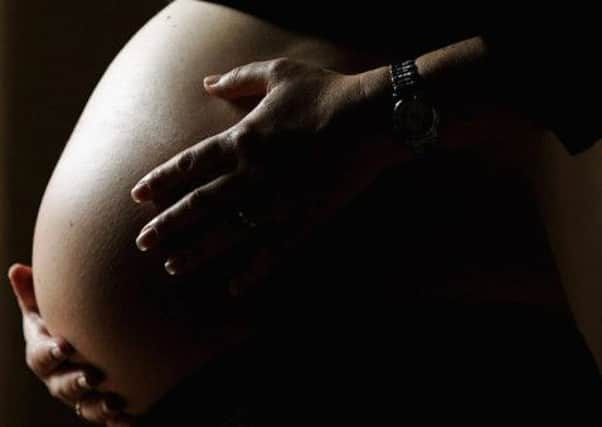Stress can wreck woman’s chances of having babies


High levels of pre-conception stress more than double the chances of a woman failing to get pregnant after 12 months of trying, scientists found.
A year of not conceiving despite regular unprotected sex is the clinical definition of infertility.
Advertisement
Hide AdAdvertisement
Hide AdHowever, fertility campaigners said telling women struggling to get pregnant that stress could be the cause of their problems might actually make them more stressed and add to the pressure they were under.
It is estimated that around one in seven couples in the UK may have problems conceiving.
The new findings from the US are published in the latest online edition of the journal Human Reproduction.
Scientists measured levels of alpha-amylase, an enzyme in saliva that provides a biological indicator of stress.
Women with high levels of the biomarker were 29 per cent less likely to get pregnant each month than those with lower levels of the enzyme, the researchers found. They were also more than twice as likely to be declared infertile.
Study leader Dr Courtney Denning-Johnson Lynch, from Ohio State University, said: “This is now the second study in which we have demonstrated that women with high levels of the stress biomarker salivary alpha-amylase have a lower probability of becoming pregnant, compared to women with low levels of this biomarker.
“For the first time, we’ve shown that this effect is potentially clinically meaningful, as it’s associated with a greater than two-fold increased risk of infertility among these women.”
The team tracked 373 American women aged 18 to 40 who were free from known fertility problems and had just started trying to conceive. Their progress was followed over a period of 12 months, or until they became pregnant.
Advertisement
Hide AdAdvertisement
Hide AdEach participant was given one saliva test on enrolment and another after the start of their first recorded menstrual cycle. Measurements of two stress markers, alpha-amylase and cortisol, were taken.
Dr Lynch urged women having difficulty getting pregnant to consider stress-managing techniques, such as yoga and meditation.
However, she pointed out that stress is not the only factor involved in fertility problems and may only play a minor role.
Co-author Dr Germaine Buck Louis, from the Eunice Kennedy Shriver National Institute of Child Health and Human Development in Rockville, US, said: “Eliminating stressors before trying to become pregnant might shorten the time couples need to become pregnant in comparison to ignoring stress.
“The good news is that women most likely will know which stress reduction strategy works best for them, since a one-size-fits-all solution is not likely.”
Susan Seenan, chief executive at Infertility Network UK, said saying stress could cause infertility may not help the many women who struggled to get pregnant.
“Telling women their infertility can be caused by stress might not be helpful, particularly given that a lot of the causes of infertility are medical conditions,” she said.
“If you have a couple where there are blocked tubes or a low sperm count or the woman is not ovulating properly, it doesn’t matter how stressed they are or not, there is every chance they are not going to conceive without some kind of intervention.”
Advertisement
Hide AdAdvertisement
Hide AdMs Seenan said where there was a medical cause of fertility, being stressed may not help but it was not going to make any difference if they relaxed more.
“There has never been a proven link to say that being stressed can make it more difficult to conceive,” she said. Trying to conceive and not conceiving is stressful enough and I would tell women not to put more pressure on themselves thinking because they’re stressed they are making it worse.”
She said women should find the right support, such as groups like Infertility Network UK, to help them if they are having problems conceiving.
ACTIVITY SETS GOOD EXAMPLE
Inactive mothers may be preventing their children getting enough exercise by setting a bad example, a study suggests.
Scientists who measured the physical activity levels of mothers and their four-year-old children found a direct association between the two.
“The more activity a mother did, the more active was her child,” said lead researcher Kathryn Hesketh, from University College London.
“Although it is not possible to tell from this study whether active children were making their mothers run around after them, it is likely that activity in one of the pair influences activity in the other
“For every minute of moderate-to-vigorous activity a mother engaged in, her child was more likely to engage in 10 per cent more of the same level of activity.
Advertisement
Hide AdAdvertisement
Hide Ad“Such small differences may therefore represent a non-trivial amount of activity over the course of a year.”
The study included 554 mothers, many of whom worked and had children who attended day-care facilities.